Have you ever wondered about the differences between sunflower seed butter and peanut butter? Does it really matter which one you choose to eat? In this article, I’ll give you a dietitian’s perspective on which is better for you: sunflower butter vs peanut butter.
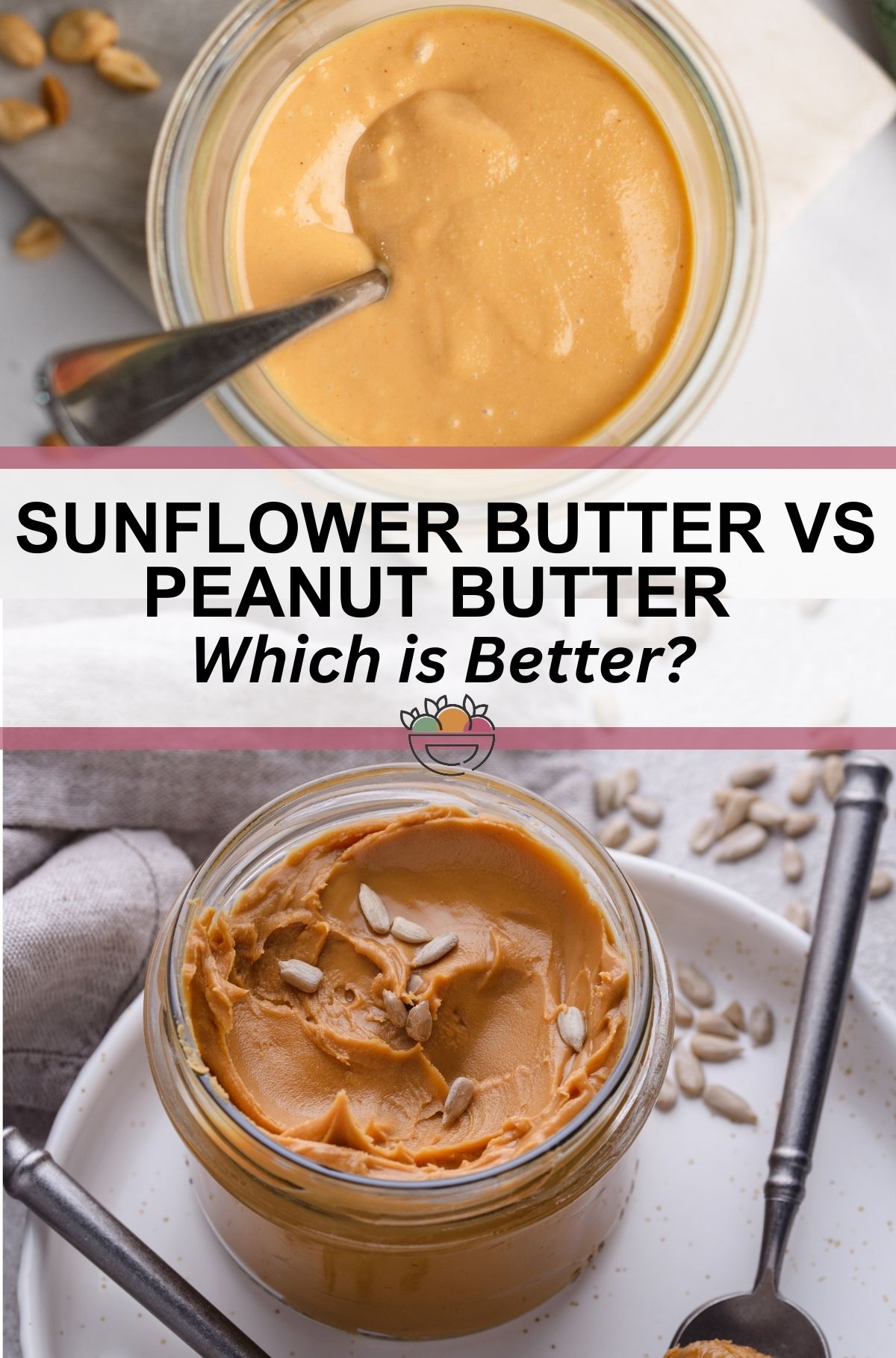
There’s no denying that peanut butter is a popular American spread, with up to 90% of households having a jar in the pantry at any given time. As a plant-based dietitian, I love peanut butter because it is not only delicious, but also has a lot to offer nutrition-wise. However, as peanuts are one of the top 8 common allergens, not everyone can enjoy a traditional PB&J so sunflower butter is a popular alternative.
If you’ve been shopping the condiment aisle at the grocery store with the growing number of peanut butter alternatives, you may have wondered if sunflower butter is better than peanut butter. Let’s break down the differences between to two so you can decide whether you want to swap sunflower butter for peanut butter.
Sunflower Butter vs Peanut Butter: Overview
Sunflower seeds are technically the fruit of the sunflower plant, but they have nutritional benefits similar to other nuts and seeds. Peanuts are a technically a legume but also offer similar nutrients to nuts and seeds.
- What is sunflower butter? Sunflower butter is one of the most popular seed butters for those with food allergies to peanuts or tree nuts. (For those with a tree nut allergy, other nut butters like walnut butter and hazelnut butter are not an option so sunflower seed butter is a good substitute.) Similar to peanut butter, it is made by pureeing roasted sunflower seeds into a paste. Some brands have add sugar, salt, and oil as well to add flavor and improve the texture. It does not taste the same as peanut butter, but has more of a unique taste with an earthy flavor but the same creamy texture.
- What is peanut butter? Peanut butter is a super popular spread made from ground peanuts to create a spreadable texture. Natural peanut butter is usually just peanuts and salt, but some recipes and brands also add oil, sugar, and salt.
Did you know that it is super simple to make peanut butter at home? It takes just 5 minutes in the food processor and 2 ingredients (roasted peanuts and sea salt). Here’s my post on how to make healthy peanut butter.
Nutrition Comparison
The table below compares the nutrient composition of sunflower butter (SunButter Brand) vs peanut butter (Skippy Brand).
| Sunflower Butter (2 tablespoons) | Peanut Butter (2 tablespoons) | |
|---|---|---|
| Calories | 200 kcals | 190 kcals |
| Total Fat | 17 g | 16 g |
| Total Carbohydrate | 7 g | 6 g |
| Dietary Fiber | 2 g | 2 g |
| Sugar | 4 g | 2 g |
| Protein | 7 g | 7 g |
| Vitamin D | 0% DV | 0% DV |
| Calcium | 2% DV | 0% DV |
| Iron | 8% DV | 2% DV |
Health Benefits
There isn’t a lot of research on the potential health benefits of sunflower seeds specifically, but we do have quite a bit of evidence that eating more nuts and seeds can be beneficial for your health. Here’s a recap of the potential health benefits of these creamy spread options.
- Heart Health: Nuts and seeds like peanuts and sunflower seeds contain phytosterols, or plant sterols, which are molecules that are similar to cholesterol. Eating foods with phytosterols can help lower your blood cholesterol because they compete with dietary cholesterol for absorption. Less dietary cholesterol absorption can transfer to lower blood cholesterol and lower your risk of heart disease.
- Peanuts/sunflower seeds are also good sources of heart healthy unsaturated fats. You can improve heart health by replacing saturated fats in your diet with the poly and monounsaturated fats in foods like nuts and seeds.
- Weight Loss/Maintenance: For many years, it was commonly believed that nuts and nut butters should be avoided because they are high in calories. Luckily, research shows that there is no reason to avoid nuts if you are trying to lose weight or prevent weight gain. Since nuts/seeds are high in calories and protein, they help you feel full faster and stay full longer.
- Blood Sugar Management: Nuts are high in fat and protein so they can help control your blood sugars by lowering the rise in blood sugar after a meal as well as improving the feeling of fullness from a meal. Research suggests that nuts and seeds can help reduce your risk of diabetes. One large review found that women who ate a serving of peanut butter up to 5x/week reduced the risk of developing type 2 diabetes by 21%.
- Cancer Prevention: plant foods like peanuts and sunflower seeds contain phytonutrients (like helianthosides in sunflower seeds) which are anti-inflammatory as well as phytosterols which both can reduce your risk of chronic disease and certain cancers.
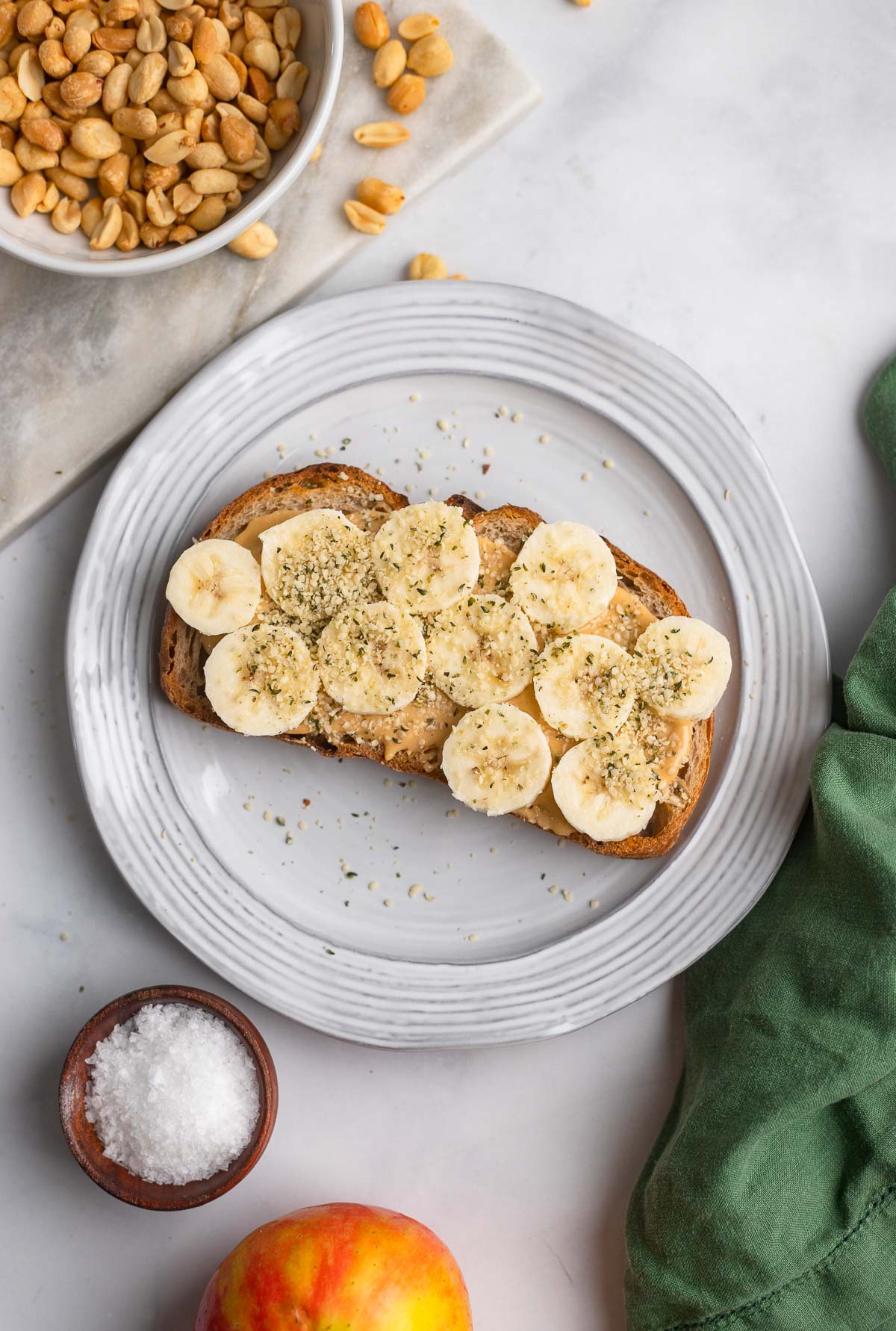
Bottom Line – SunButter vs Peanut Butter: Which is Better?
- Calories and Carbs: both butters have essentially the same amount of calories and carbs per serving.
- Protein: both sunflower butter and peanut butter are a good source of protein as they each offer 7 grams of protein per serving (the same as a cup of dairy milk or an egg) so they are a great way to add some plant-based protein to your diet.
- Fat: although the fat content of both butters is high, the majority of the fat is heart healthy fats (mono- and polyunsaturated). Both contain a little saturated fat as well; about 3 grams (when comparing brands with no added fat).
- Nutrients: both butters are a good source of vitamin E, several B vitamins (like folate, pantothenic acid, and thiamine) as well as minerals like magnesium and zinc. (Although, sunflower butter has slightly more magnesium, zinc and phosphorus.) Sunflower butter also has twice the amount of iron.
Bottom Line: Both can be a great addition to a healthy diet as they are protein-rich plant-based spreads. For those with peanut allergies, sunflower butter is a popular choice as it has similar nutrient benefits to peanut butter. A lot of it comes down to personal preference based on flavor.
Uses and Suggested Recipes
You can use both peanut butter and sunflower butter interchangeably in many recipes with just a slight difference in taste. Here are some of our favorite ways to use peanut butter and sunflower butter:
- Spread on toast or sandwich bread with jam or sliced fruit.
- Use as a dip for apples or pears.
- Add to hot cereal or drizzle onto yogurt.
- Use in baked goods like cookies and cake.
- Use in stir fry sauces or salad dressings.
Frequently Asked Questions
Yes – you just need to make sure to choose a no sugar added sunflower butter. The no sugar added sunflower butter from SunButter has just 2 net carbs per serving (2 tablespoons).
Yes – Skippy peanut butter is vegan as it does not contain any animal-based ingredients. It is actually one of the only brands that has the vegan certification.
Yes, peanut butter is dairy free as it does not contain any dairy-based ingredients.
More Match Up Posts
- Juicing vs Blending: Both are great ways to easily incorporate more nutrients into your diet, but find out which one I prefer!
- Flaxseeds vs Chia Seeds: Both of these super seeds will add tons of fiber to a dish, but one of them has way more protein – find out which one in the post.
- Pinto Beans vs Black Beans: Beans are a budget-friendly super food that easily add more protein and fiber to a dish. Find out how these two stack up!
- Seitan vs Tofu: both are packed with plant-based protein, but only one provides all of the essential amino acids. Read the post to find out which one!
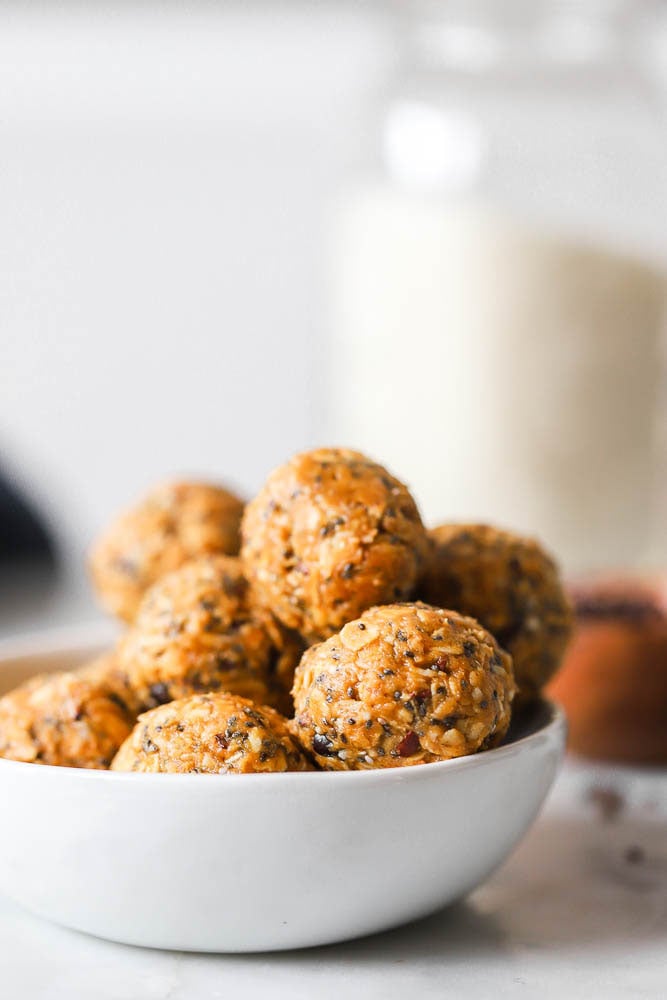
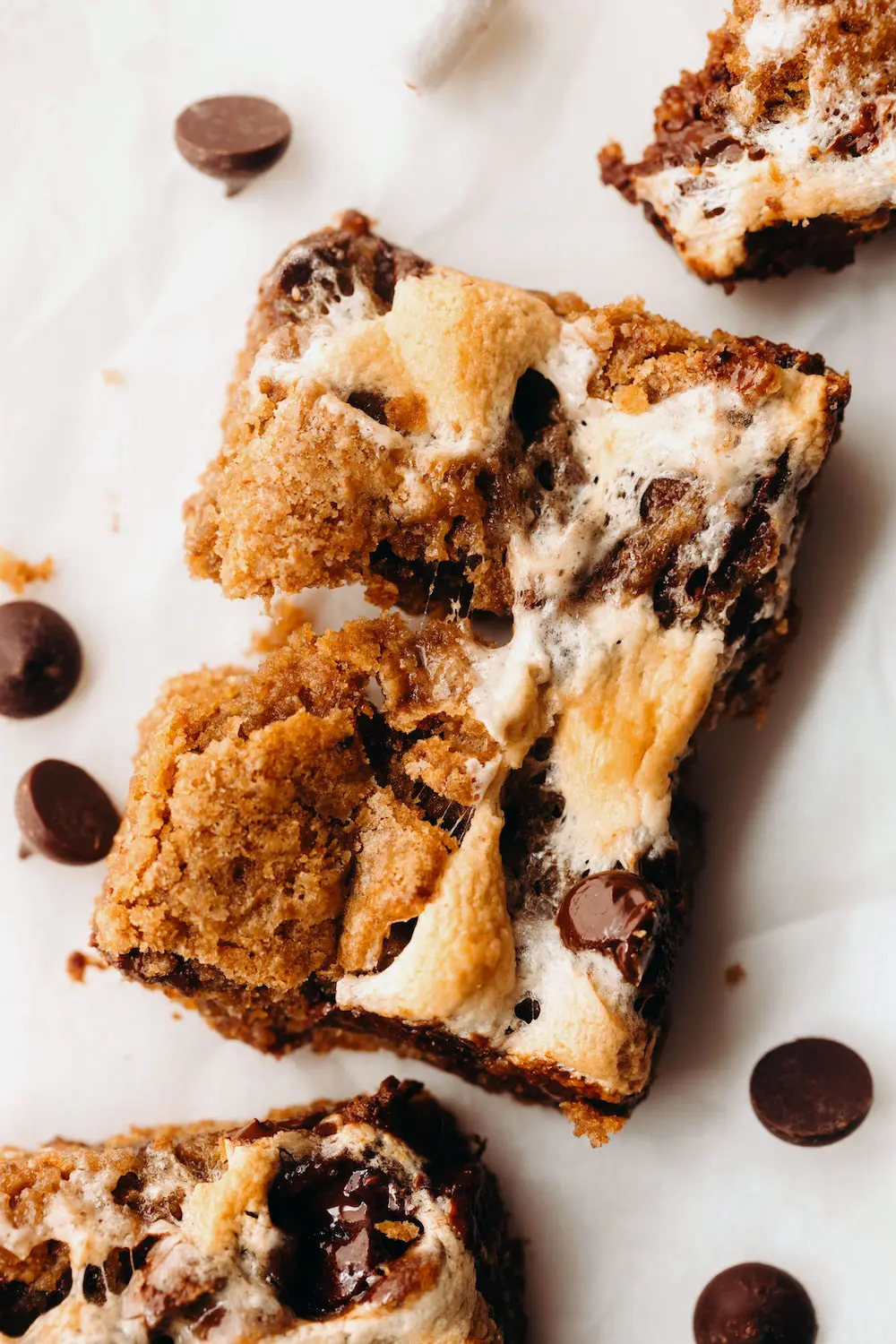
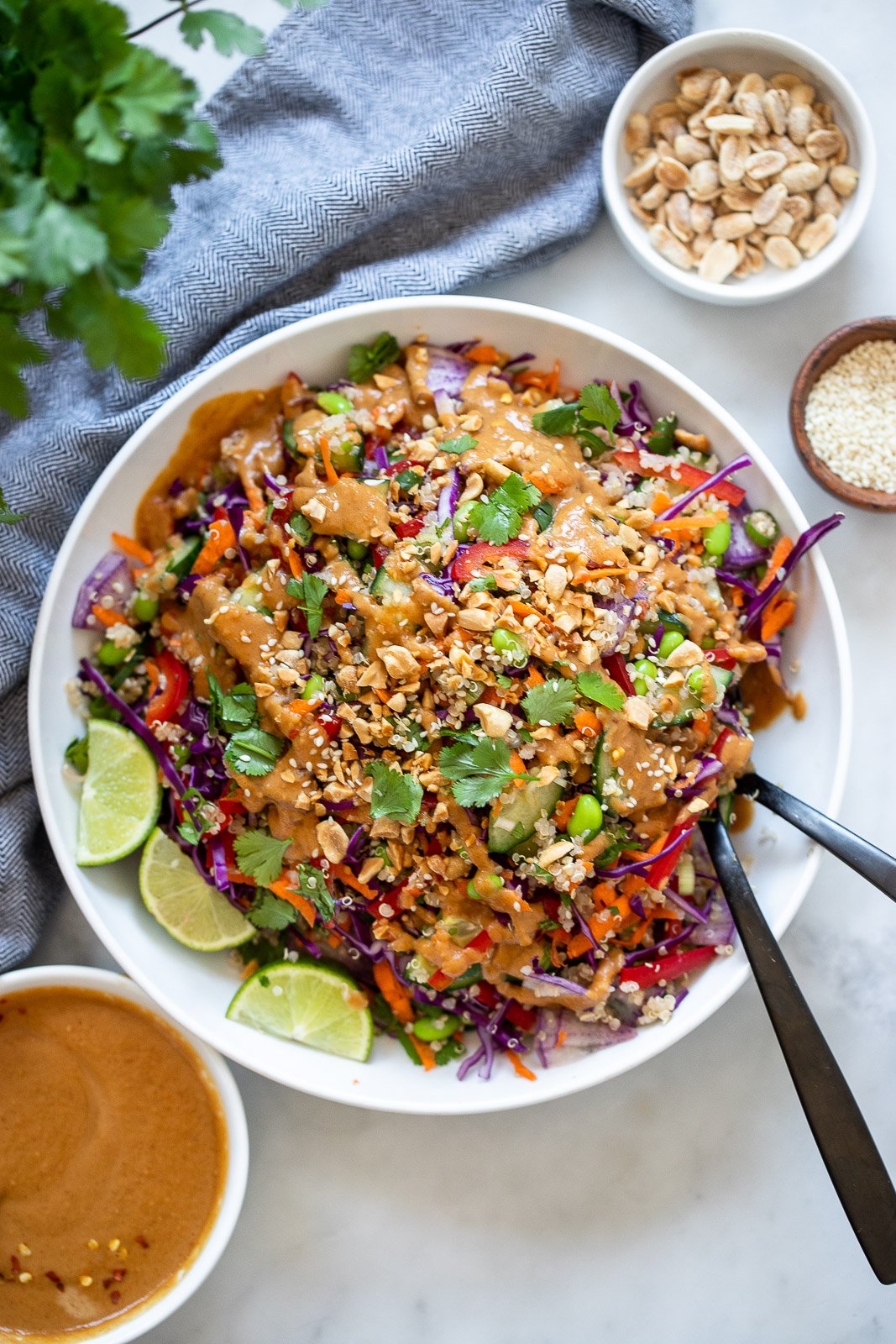

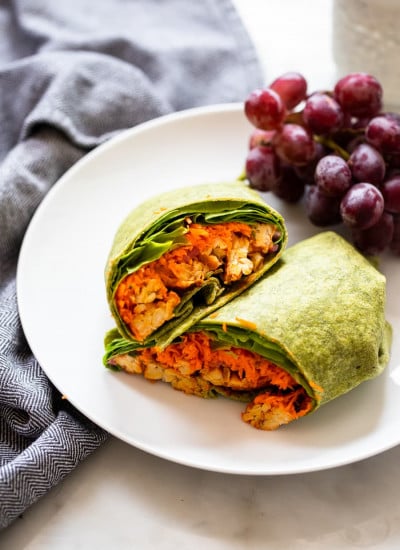
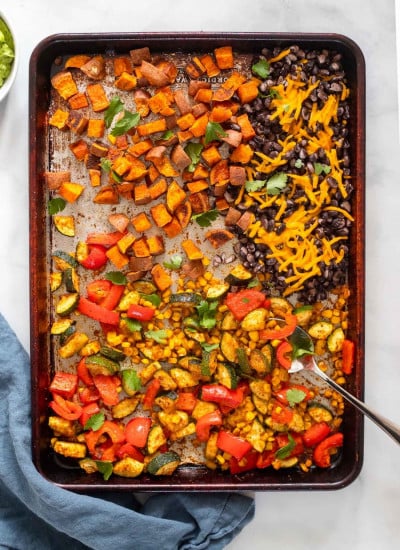
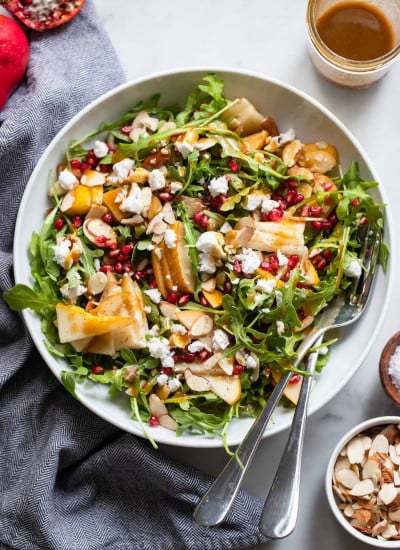
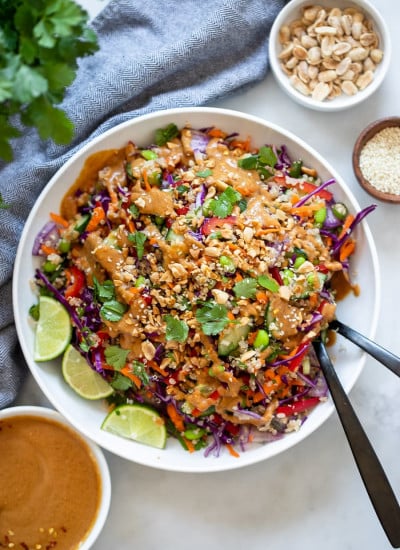

Leave A Reply!